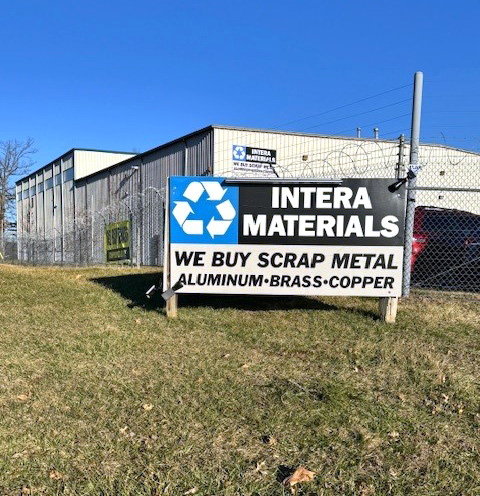Introduction: The Importance of Scrap Metal Industry in Jessup, MD
Jessup, Maryland, strategically located between Baltimore and Washington, D.C., is a hub for industries and businesses. Among these, the scrap metal industry plays a critical role not only economically but also environmentally. In this article, we delve into the intricacies of selling scrap metal in Jessup, MD, exploring the processes, market trends, and the broader environmental implications.
Understanding Scrap Metal Types and Values
Scrap metal comes in various types and understanding these can help maximize returns. The two primary categories are ferrous (containing iron) and non-ferrous metals (non-magnetic metals like copper, aluminum, and brass). Non-ferrous metals typically fetch higher prices per pound due to their widespread use in industries.
Prices fluctuate based on global demand and supply, influenced by industries such as construction and automotive manufacturing. Reliable sources such as Intera Materials provide up-to-date pricing information.
The Selling Process: From Collection to Payment
When selling scrap metal in Jessup, it is important to follow a precise process from collection to getting paid. Begin by segregating your metals based on their type, as mixed metals generally yield lower returns. Sorting ensures that buyers can easily identify and value the scrap material, leading to potentially higher payouts.
Once sorted, locate reputable buyers or recycling centers. Jessup boasts several facilities equipped to handle scrap metal effectively. Upon delivery, materials are weighed and evaluated for quality. Payments are typically made based on the current market rates.
Market Trends Impacting Scrap Metal Prices
The global market significantly influences scrap metal prices. Economic developments in major countries, trade policies, and commodity cycles impact demand. For instance, a surge in construction or technology sectors in the U.S. can escalate the demand for metals like steel and copper, subsequently elevating their prices.
According to a report published by the Bureau of International Recycling (BIR), upbeat economic conditions have bolstered scrap prices by an average of 15% over the past five years. Understanding these trends can help sellers time their sales to maximize profits.
Environmental Benefits of Selling Scrap Metal in Jessup
The environmental benefits of selling scrap metal in Jessup are profound. Recycling reduces the need for mining, conserves natural resources, and decreases carbon emissions. The Environmental Protection Agency (EPA) estimates that recycling metals saves approximately 92% of energy for aluminum and 56% for steel, when compared to producing these metals from raw ore.
This energy conservation underscores the crucial role that scrap metal sellers in Jessup can play in promoting sustainable practices.
Challenges in the Scrap Metal Industry
One of the pressing challenges in the scrap metal industry is the volatility of market prices. Global economic instability, trade tensions, and regulatory changes can result in unpredictable pricing trends, affecting profits for sellers.
Additionally, the quality and composition of scrap metal can vary, posing challenges in processing and valuation. To mitigate these challenges, knowledge and strategic partnerships with reliable facilities like Intera Materials can be essential.
Key Regulations and Compliance
Selling scrap metal in Jessup involves adhering to specific state and federal regulations. In Maryland, scrap yards must comply with regulations outlined by the Maryland Department of the Environment. These include proper documentation, environmental compliance, and accurate reporting of transactions to prevent illegal activities.
Being aware of these regulations is crucial to avoid potential fines and ensure smooth business operations. Several resources, including the Maryland Department of Environment website, provide comprehensive compliance guidelines.
Technological Advancements in Scrap Metal Recycling
Technological innovations continue to reshape the scrap metal recycling industry. Advancements in sorting technology, such as the use of sensors and AI-based systems, improve the precision and speed of material identification and separation.
In Jessup, adopting these advanced technologies can enhance efficiency, increase recycling rates, and support higher returns. Buyers like Intera Materials leverage these advancements to offer better services.
Impact of International Trade on Local Market
International trade policies significantly impact the local scrap metal market. Changes in tariffs, import/export regulations, and bilateral trade agreements can lead to increased competition and fluctuations in metal pricing.
For instance, import tariffs imposed by the U.S. on steel have led to increased sourcing of domestic scrap metal, providing an advantage to local sellers in Jessup.
The Future of Scrap Metal Industry in Jessup, MD
Looking ahead, the scrap metal industry in Jessup is poised for growth. With a sustainable focus on recycling, investments in technology, and strategic alignment with global market trends, the industry is expected to see robust developments.
Local policies encouraging environmental practices and infrastructure investments are likely to contribute to shaping the future of the industry in Jessup.
Key Takeaways: Navigating the Scrap Metal Market in Jessup
- Understanding market dynamics, metal types, and pricing trends are key to maximizing returns from scrap metal sales.
- Partnering with reputable buyers like Intera Materials ensures compliance, fair pricing, and efficient processes.
- The environmental impact and energy savings from recycling metals are significant, emphasizing the importance of this industry.
- Technological advancements and regulatory compliance are crucial for maintaining competitiveness and sustainability.
FAQs
What are the main types of scrap metals I can sell in Jessup, MD?
The main types of scrap metals you can sell include ferrous metals like iron and steel, and non-ferrous metals such as copper, aluminum, and brass. Non-ferrous metals typically offer higher returns due to their widespread industrial use and demand. Properly sorting these metals before selling is crucial for obtaining the best possible price.
How can I ensure compliance with Maryland state regulations when selling scrap metal?
Ensuring compliance involves understanding and adhering to the regulations set by the Maryland Department of the Environment. Sellers must maintain proper documentation of transactions, verify the identity of sellers and buyers, and report transactions to prevent fraudulent activities. Keeping updated with regulatory changes and working with reputable buyers like Intera Materials, who are well-versed in compliance, can help mitigate legal risks and ensure smooth operations.
What factors influence the price of scrap metal in Jessup?
Scrap metal prices in Jessup are influenced by various factors, including global economic conditions, demand and supply dynamics, and changes in international trade policies. Local infrastructure developments and technological advancements also impact prices. Staying informed through credible sources, industry reports, and market analysis can help sellers navigate pricing volatility and make strategic decisions.
What are the environmental benefits of selling scrap metal in Jessup?
Recycling scrap metal significantly reduces environmental impact by conserving natural resources, reducing the need for raw material extraction, and minimizing energy consumption. According to the Environmental Protection Agency (EPA), recycling metals like aluminum and steel saves substantial energy compared to producing them from raw ore. This conservation helps decrease carbon emissions, contributing to environmental sustainability. Sellers in Jessup can play a pivotal role in promoting these benefits by actively participating in the recycling ecosystem.
How is technology enhancing the scrap metal recycling process in Jessup?
Technology plays a crucial role in enhancing the efficiency and precision of the scrap metal recycling process. Innovations such as AI-based sorting systems and advanced sensors improve the speed and accuracy of material identification and separation. Facilities in Jessup that invest in these technologies, can offer superior services to sellers, improving recycling rates, ensuring better valuations, and fostering a more sustainable operation.



